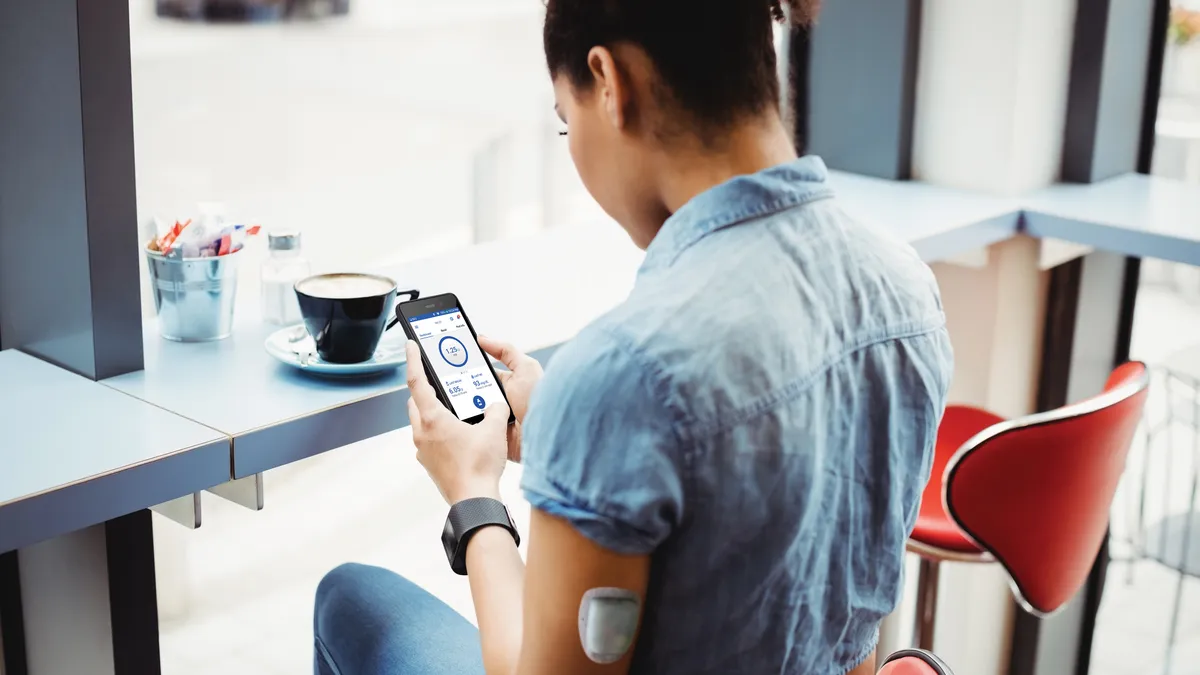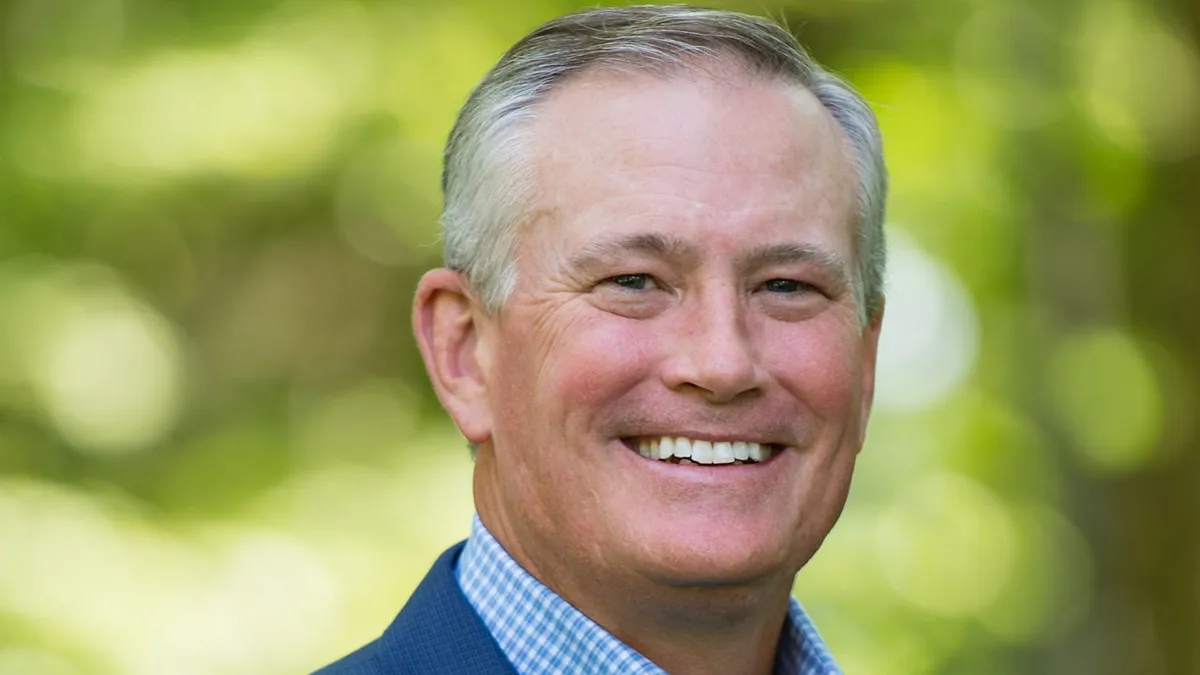The run of success for diabetes tech in 2020 carried over into the beginning of 2021 as continuous glucose monitor and insulin pump makers grew revenues and product volumes over last year's marks.
Insulet, which makes wearable insulin pumps, and CGM company Dexcom both grew revenues by at least 25% in the first quarter of 2021, bringing in $252 million and $505 million, respectively. Meanwhile, Insulet rival Tandem Diabetes Care grew sales by 44% to $141 million.
All three companies raised 2021 guidance due to outperforming internal expectations in the quarter, while Wall Street analysts were in agreement that the diabetes tech space met, and in some instances beat, projections for the quarter.
However, what is being seen by industry and Wall Street as a strong start to the year has not translated into continued success among investors. All three companies have seen near-daily losses since reporting the quarter's earnings, with stock price drops beginning late last month.
Between April 28 and Monday, Tandem's stock price decreased by 16%, Dexcom's by 19.5% and Insulet's by 25%. Each company saw slight increases when the market closed Tuesday.
SVB Leerink analyst Danielle Antalffy said the trend can be seen across medtech in general last week, not just among diabetes companies. But Antalffy added that while most medtech businesses were hit by the coronavirus pandemic and are now recovering, diabetes tech companies were more resilient throughout last year.
Insulet, Tandem and Dexcom all grew gross profits between 21% and 34% in 2020 as tech-driven healthcare like wearables, telehealth and remote patient monitoring took off during the pandemic.
"Their sales growth remained pretty strong throughout 2020. They definitely saw an impact from the pandemic, no doubt, especially internationally … but much less so," Antalffy said. "So, if you're playing the recovery trade, these are stocks that are not tied to a recovery."
The stock market struggles could be more tied to company-specific updates on earnings calls than longer-term issues.
For example, Insulet updated that the launch of its Omnipod 5 integrated insulin pump will be likely delayed until late June or early July, after the company had been eyeing a first half launch.
CEO Shacey Petrovic said during a Thursday earnings call that the delay is due to FDA workload and the prioritization of COVID-19-related tasks rather than any issues with the product, which the entire medtech industry has had to manage as well.
"I don't believe that there's any other drivers outside of the workload tied to the pandemic," Petrovic said. "The review process is taking a bit longer than we expected, but we're in the final stages and feel good about where we are."
An FDA decision would follow a trial released during the Endocrine Society's 2021 annual conference in March, showing that usage of the Omnipod 5 integrated system lowered blood sugar levels and increased time spent per day in desired blood sugar ranges for patients with Type 1 diabetes.
J.P. Morgan analysts, who labeled Omnipod 5 as a top 2021 product launch for all of medtech, wrote that the delay should not last past "very early July" and the eventual launch of the product later this year keeps them bullish on the company.
Dexcom similarly reported unexpected challenges for 2021. CEO Kevin Sayer explained during an April 29 earnings call that the company is lowering international average sales prices in certain markets in an attempt to increase access and volumes.
Sayer said that the decision mirrors a similar strategy in the U.S. when the company switched to the pharmacy channel from the durable medical equipment channel, a strategy used to grow revenues by lowering prices but increasing overall volume.
Executives said the strategy shift will contribute to an additional $50 million drag on the company, increasing total drags on revenue to $250 million in 2021.
When asked if the decision was made to remain closer in price with Abbott Laboratories rival Freestyle Libre 3 CGM product — which was cleared for the European market in September 2020 — the CEO quickly pushed back.
"We've not made our decisions based on Libre 3. We've looked at what we accomplished in the U.S.," Sayer said. "We won't let Libre 3 drive our decisions. We'll drive our own."
Jefferies analysts wrote that while the pricing "rationale is sound," the pressure on margins "as [Abbott] pushes towards Libre 3 will keep the 'price fight' theme going."
Even with the lowered international prices, Dexcom sensors will still be more costly than Abbott's, according to William Blair analysts.
"Management noted international pricing is expected to settle out around U.S. pharmacy pricing (we estimate this is somewhere around $1,900 annually), which suggests Dexcom will still be selling at a premium to Libre globally," the analysts wrote.
Abbott's Freestyle Libre line brought in $829 million in the first quarter. The company's entire Diabetes Care group brought in $980 million, representing about 30% year-over-year reported growth.
The coming U.S. release of the Freestyle Libre 3 will put further pricing pressure on Dexcom, according to Antalffy. The analyst added that growing competition in both the insulin pump and CGM markets is also likely playing into investor behavior.
Growing international markets
While Tandem is facing increased competition from Insulet, the company may be able to boost its business internationally.
International sales totaled $37.7 million in the first quarter, up 105% compared to the same period last year, and insulin pump shipments outside of the U.S. were up by 106%, jumping to 8,708 from 4,220 in the first quarter of 2020.
Tandem CEO John Sheridan said during a May 5 earnings call that the growth in demand did not come from one specific country but across all markets.
"There are approximately 4 million people living with Type 1 diabetes in the countries that we are in internationally and yet pump penetration on average is less than 20%," Sheridan said. "It's a huge opportunity. And even with our commercial efforts still scaling and meaningful COVID-19 restrictions in place, we outperformed our internal expectations for Q1."
CFO Leigh Vosseller said that international sales will become a larger part of Tandem's overall business, with projections that overseas markets will make up about 20% of all 2021 sales.
"I actually think it was very positive to see a meaningful revenue contribution internationally because that's going to be an important revenue growth stream going forward, especially as they face increasing competition here in the U.S.," Antalffy said.
However, international markets will likely become part of the overall insulin pump competition as Insulet is targeting overseas growth as well. The company entered five new countries in Europe and the Middle East in 2020, entered Turkey in the first quarter of this year and plans to expand into Australia later in 2021.
Insulet CFO Wayde McMillan said that international markets are still recovering from COVID-19 as some countries are implementing lockdowns, but international Omnipod revenue growth of 13% in the first quarter still beat internal expectations.
Bigfoot wins smart pen clearance
Another entrant into the diabetes tech competition is Bigfoot Biomedical, which on Monday announced it received 510(k) clearance from the FDA for its smart insulin pen system that informs patients with Type 1 or Type 2 diabetes about insulin dosing amounts based on data from a CGM.
While Bigfoot is smaller than other companies in diabetes tech like Dexcom, Insulet and Medtronic, the privately held company has partnered with medical device giant Abbott. Bigfoot's smart insulin pen system is cleared to work with Abbott's Freestyle Libre 2.
The Bigfoot Unity system consists of smart insulin pen caps that can link with Abbott's CGM and gather data about a patient's glucose levels. Dosing recommendations will then be displayed on the pen cap. The system can also link with a smartphone app and alert patients about very low glucose levels or for possible missed doses.
The pen caps and system work with disposable insulin pens made by companies like Eli Lilly, Novo Nordisk and Sanofi.
SVB Leerink analysts wrote that the news is a positive for Bigfoot as it is their first product to be cleared and the decision has been long awaited. The analysts added that the clearance will also be a boost for Abbott because Unity "is an important first integrated system for Libre, which could drive further adoption in MDI (multiple daily injection) patients and improve patient retention."
Along with insulin pumps and CGMs, Medtronic entered into the smart insulin pen space with its acquisition of Companion Medical in August 2020.


















